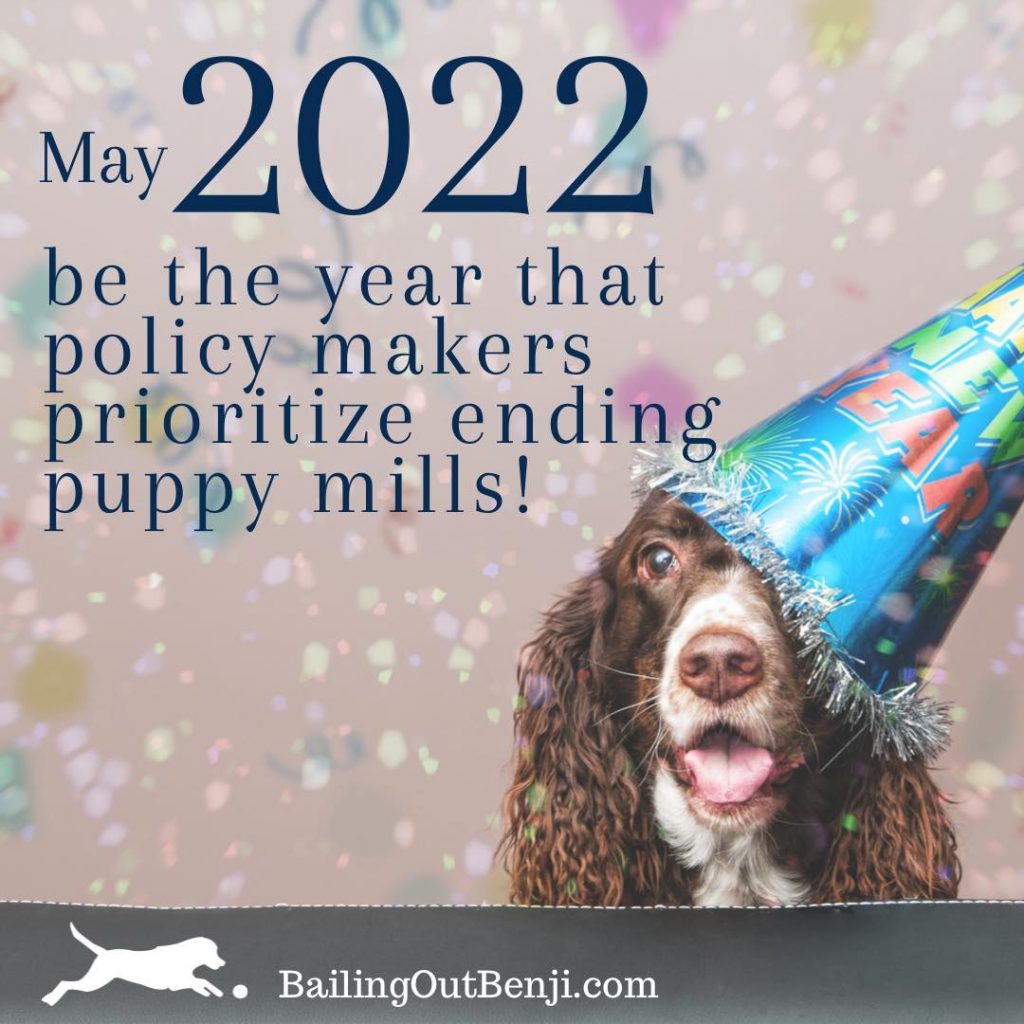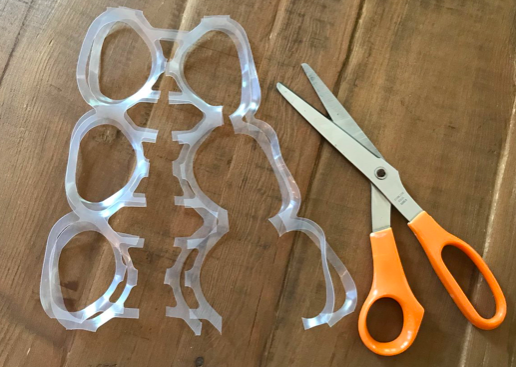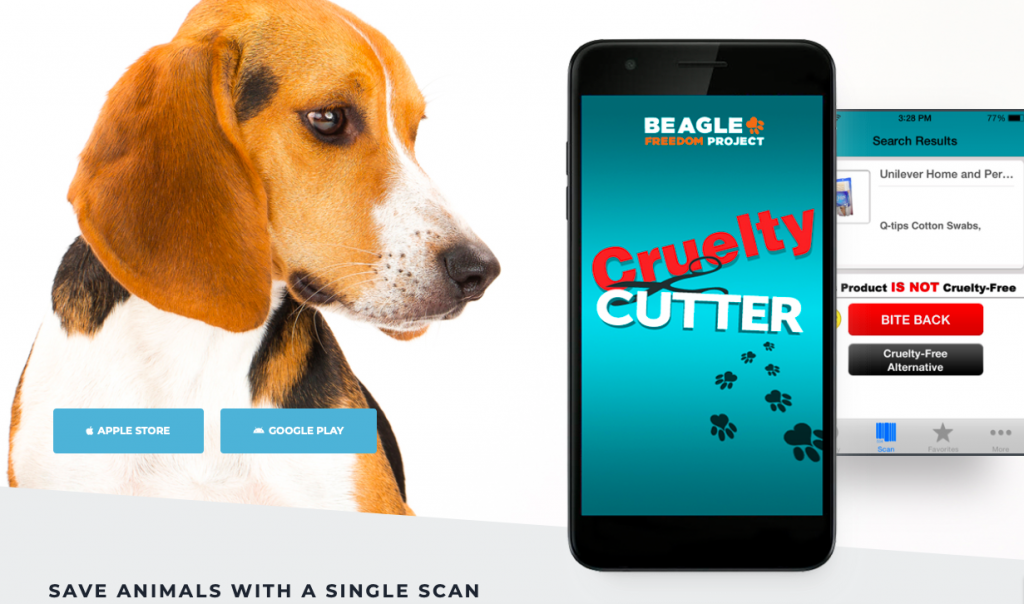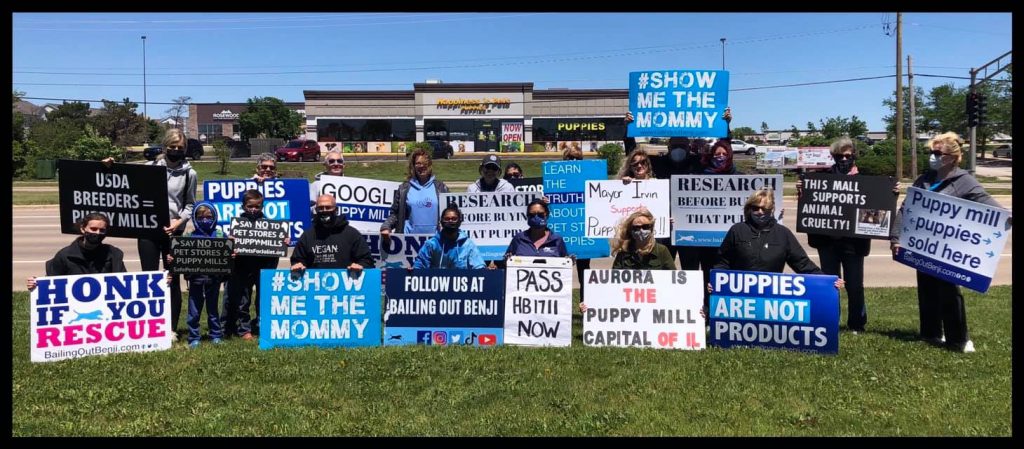Written by Becky Monroe
Throughout my career, I have been fortunate enough to have been able to work with both domestic and wildlife rescue organizations. For the first blog of this new year, I thought it would be beneficial to share simple things that we can all do to make the world a better place for all animals.
I hope that we all find 2022 to be a kinder year for all of us- including our animal friends.

1. Don’t shop in stores where they sell mass bred animals. We educate about puppy and kitten mills predominantly, but every species of animal that is sold in stores is usually bred in a commercial facility. When possible, please patronize humane pet stores that focus on selling supplies instead of live animals.
2. Volunteer at a local shelter or rescue (they are always looking for dog walkers, cat groomers, photographers, help with laundry, etc…) Animal welfare organizations are always in need of volunteer help. Whatever strengths or talents you have, they will try to put them to good use!
3. Organize a collection of dog and cat food for a local food pantry. If your community doesn’t have a pet food pantry- or a regular pantry that accepts pet food- collect donations for your local shelter.
4. Choose a day a week or a month to not eat any meat. To get started, check out this list of 40 easy vegetarian recipes!
5. Foster a pet in need. Fostering is a great way to help your local shelter or rescue. They provide everything you need to be successful and you just provide the care and love while your new friend waits for their forever home! Look for shelters and rescues near you to get started.
6. Feed the birds all year long and leave water sources out for other wildlife. Leaving food and water out for the animals is especially helpful during the extreme heat and cold weather. Want to take it a step further? Get your yard certified as a safe place for wildlife.
7. Don’t use retractable leashes and tell your friends and family not to as well. While these are a popular option for many pet owners, they often put pets and people into unsafe situations.
8. Take part in a 5k walk or run that benefits homeless animals. These are great events to participate in alone or with your pup!
9. Don’t use glue traps or poison to kill mice/rodents. Not only can your pet get into the poison, but glue traps cause needless suffering. Check out these humane alternatives instead!
10. Cut up the plastic rings off milk jugs or juice bottles and the plastic rings off soda packs. Those PSAs we all saw when we were younger stuck with most of us but this is a very easy way to protect wildlife.

11. Volunteer to manage a colony of Trap, Neuter, Return (TNR) cats in your community. TNR is the most humane and effective method known for managing feral and stray cats and reducing their numbers. To view TNR programs, low cost spay/neuter clinics, mobile spay/neuter clinics and other services in your area, click here.
12. Say no to balloon releases and educate others on how dangerous they are to wildlife and farm animals if let go outside. Balloon releases have become increasingly popular in recent years. While the sentiment is beautiful, they can be very destructive and have deadly effects on the environment, wildlife and marine life. Learn more here.
13. Initiate a humane ordinance in your community and help pass a law to prohibit the sale of mass bred pets. More than 400 localities across the United States have passed humane ordinances! Contact Bailing Out Benji today and we can help!
14. Create a butterfly or honey bee garden. Not only are they beautiful additions to your yard, but you can greatly help the environment and even local gardens and farms by attracting bees and butterflies to your yard!
15. Make sure your pet’s ID tag is on and up to date. Make sure their microchip is registered to you with all up to date information. The American Humane Association estimates over 10 million dogs and cats are lost or stolen in the U.S. every year. When you microchip your pet, there is a higher chance of them being returned to you.
16. Never, ever put yourself or any of your body parts in a wild animal’s cage or enclosure at a zoo or wildlife center. Never. Not only can you be severely injured, but the animal may have to be euthanized.
17. Buy products that are labeled cruelty free. Many puppy mills exist solely to produce beagles for testing facilities. By becoming an ethical shopper, you can ensure that no animal has to suffer because of your purchases. You can often spot these items because they have a symbol of a bunny on the packaging or you can download the cruelty cutter app and scan items real-time in stores!

18. Volunteer to help with a dog transport. Many rescues need help getting dogs, cats and even wildlife transported safely. Most legs of transport are 1-2 hours.
19. Use biodegradable products such as straws and silverware instead of plastic. The less items we can send to the dump the better!
20. Donate unwanted towels, sheets, blankets and other bedding to domestic and wildlife shelters and help provide comfortable bedding to animals in need.
21. Use more native plants in your landscaping. This is an easy way to help the environment, attract pollinators and cut down on the mowing and upkeep! Check out some easy ways to transition here.
22. Join the Bailing Out Benji team and help put an end to puppy mills! We always need more passionate advocates to get involved. Contact us today about volunteering and let’s make your community a more humane place!



